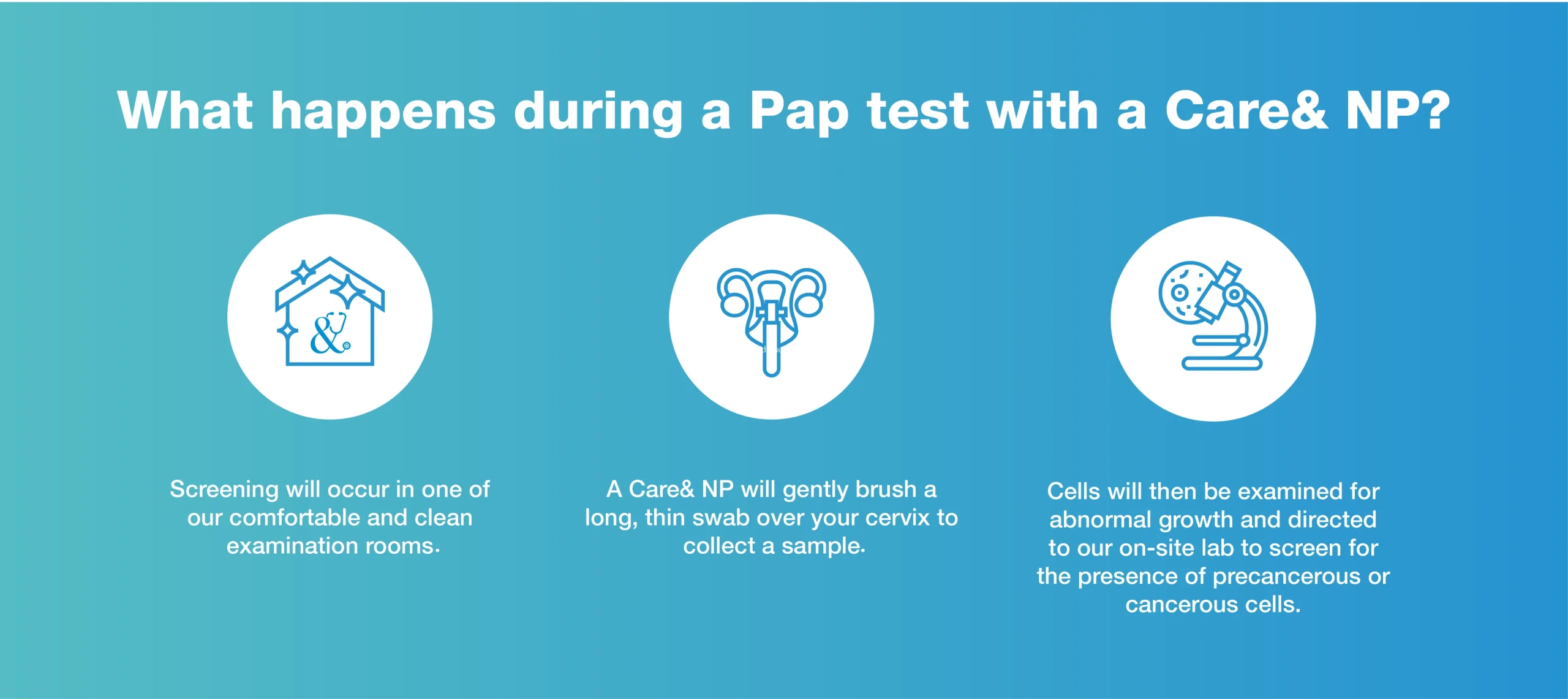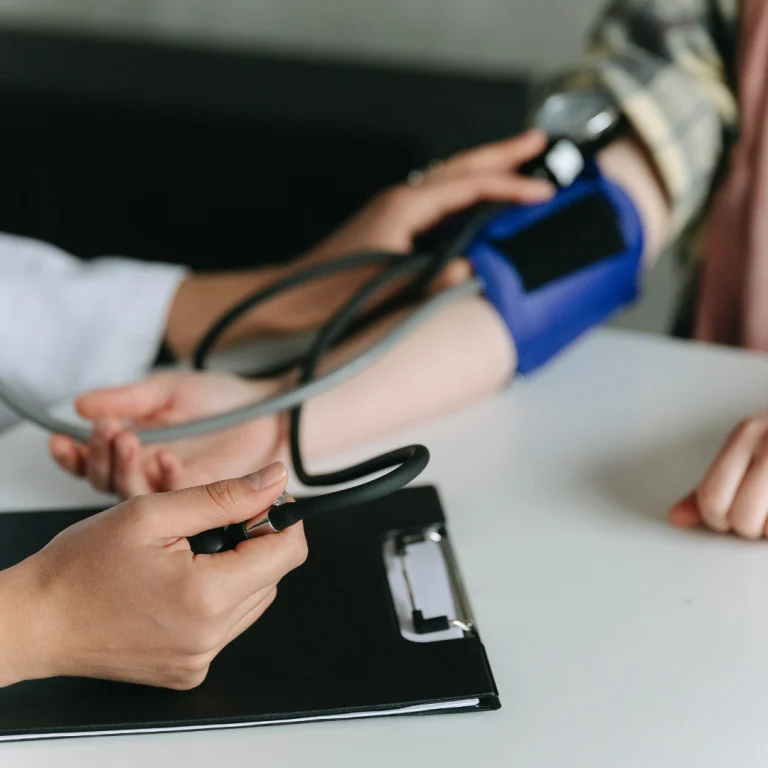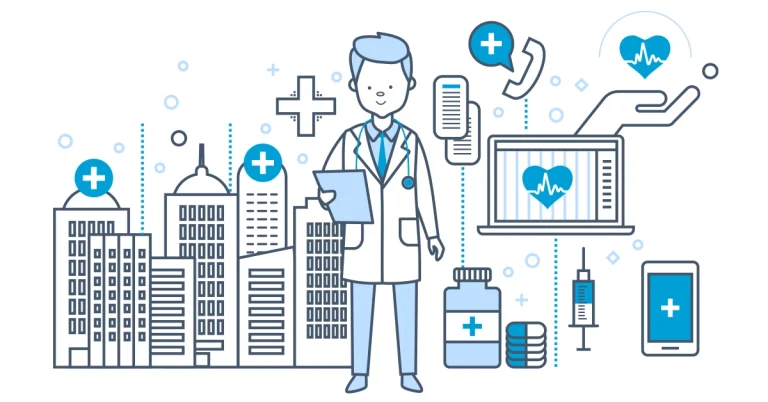How Regular Pap Tests Can Save Your Life
Even when you’re in excellent health, keeping up with regular screenings is crucial to maintaining overall health and wellness.
Regular Pap testing is recommended to begin at age 25 and is recommended to occur every three years unless advised otherwise by your healthcare provider. Pap tests can save your life as cervical cancer accounts for 1.3% of all new female cancers and 1.1% of all female cancer deaths (Canadian Cancer Society). At Care&, we offer and encourage annual Pap tests to support our clients in being informed about cervical cancer risks and staying up to date with their regular screenings.
Early detection supports the best outcome for your health. Pap tests (or Pap smears) are cervical cancer screenings that look for precancers and cell changes on the cervix that may become cancerous if not treated early. A Pap test can also detect changes in your cervical cells long before cancer develops.

Pap tests are very accurate. Regular Pap screenings reduce cervical cancer and mortality by at least 80 percent (National Cancer Institute).
Who needs a Pap test?
- Women should begin annual screening at age 25 or after becoming sexually active.
- Those with a weakened immune system from chemotherapy, organ transplant or other medical procedures
- HIV+ women
Our nurse practitioners prioritize your comfortability and health when conducting your Pap test. Your screening will occur in one of our comfortable and clean examination rooms. During the appointment, your nurse practitioner will quickly brush a long, thin swab over your cervix to collect a sample. The cells will then be examined for abnormal growth and directed to our on-site lab to screen for the presence of precancerous or cancerous cells. While everyone has a different threshold for pain, your Pap test will not be painful and, at most, will feel similar to a slight pinch.
Care& Family Health offers on-site lab testing for cervical cancer to provide an easy and reliable resolution to annual Pap tests. We also provide cancer prevention services, including education, discussing evidence-based strategies to minimize cancer risk, and access to counselling and support.







